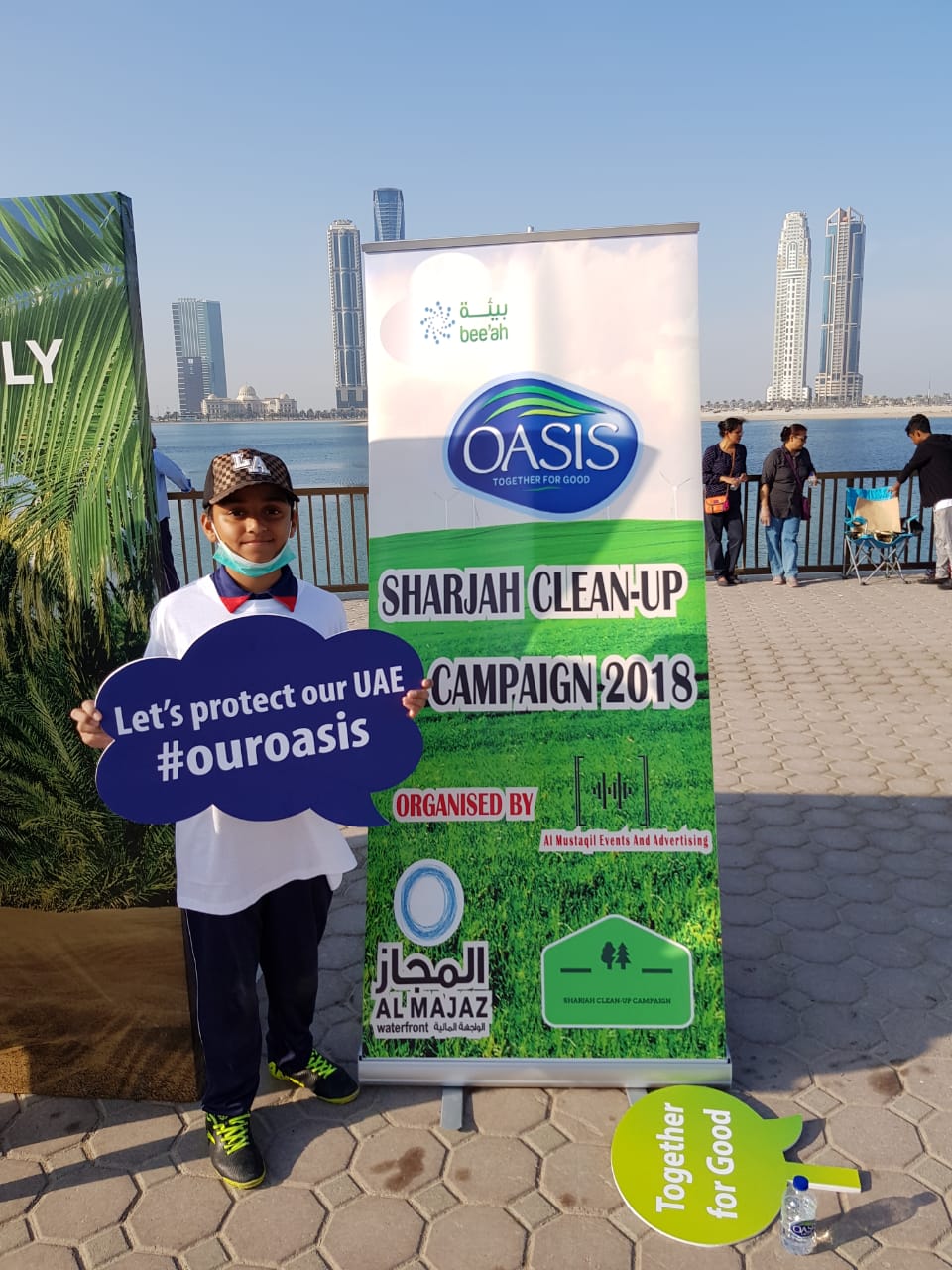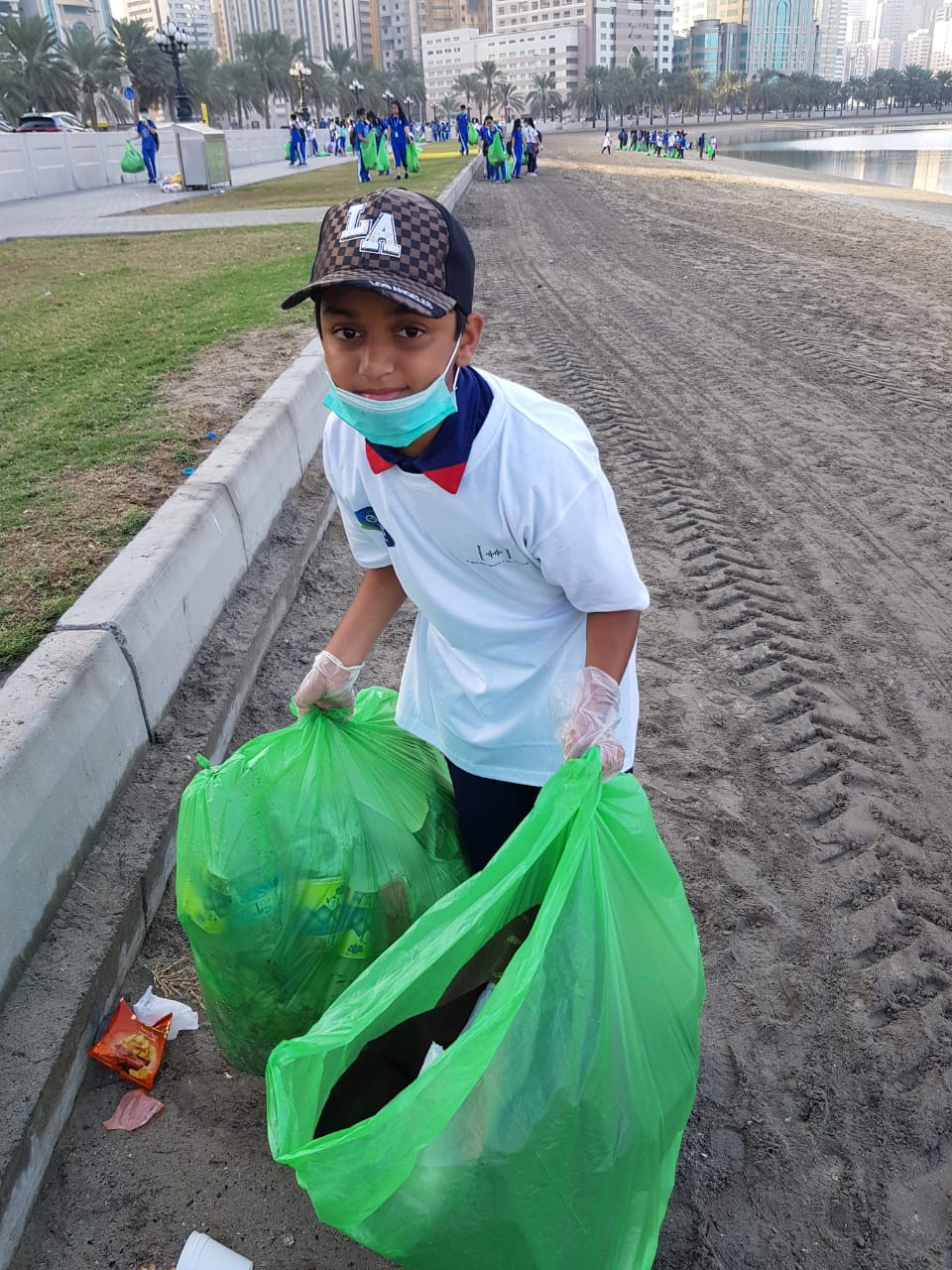
Zishan @ SHARJAH Cleaning Campaign
The lack of adequate sanitation and clean water causes many diseases and their spread. It can partly be attributed to a lack of planning by government and partly to the lack of knowledge amongst the population. Inadequate sanitation causes serious impact on health, especially for children. It leads to many major diseases like diarrhea and cholera. Improper drainage can also lead to the development of breeding sites for mosquitoes which causes diseases like malaria and dengue.
Great civilizations like the Indus valley civilization, ancient Greece and Roman empire had well-developed sanitation systems. However, with the dawn of the industrial revolution and the birth of overcrowded big cities sanitation was disregarded. This gave birth to many communicable diseases and the general ill health of the people.
In the early 19th century London was one of the most crowded cities in the world. This great city was hit by one of the worst epidemics of cholera in human history. Dr. John Snow, considered one of the fathers of modern epidemiology, concluded that poor sanitation and River Thames being considered as an open sewer by the public was the reason for this epidemic. Dr. Snow’s discovery and the Great Stink of 1858 necessitated the development of the London sewer, considered one of the seven wonders of the industrial world. With proper sanitation, the communicable diseases diminished.
The Swachh Bharat Campaign which translates to ‘Clean India Campaign’ was launched on 2nd October, 2014 by the Prime Minister of India with the aim to achieve an “open-defecation free” India by 2nd October 2019 through the construction of toilets at homes and communities. It is a baby step towards a healthy India, for which she will have to tackle many issues including over-population, poor living conditions, and inadequate health care facilities.
One of the main obstacles for the success of this campaign is, however, is the participation of the general public. The government alone cannot successfully make the country cleaner. Spitting, urinating in public and even open defecation is not an uncommon sight in the streets of India. Educating the people about the hazards of poor sanitation and a collective participation of local community and government is crucial for the country to progress in this front.
Though the problem is not as dire as in India, the UAE, my second home has undertaken various initiatives to keep the environment around us clean and self-sustaining. Blessed with the immense wealth and natural resources along with visionary leadership, the country is well ahead of most nations of the world when it comes to proper sanitation and health initiatives. Despite being ahead, the leaders of this nation is still trying to improve with many novel ideas, a fact which is truly inspiring.
The Emirate of Sharjah, where I live and study, has been at the forefront of such initiatives. I have been part of some of these initiatives with the recently concluded ‘Clean Up Sharjah’ campaign being a major success where children from the various schools in the Emirate got together to clean up a 5 kilometer stretch of the Corniche area, not only bonding well as a team for a good cause but being appreciated for the efforts, getting certificates of participation and forming focus groups for such initiatives in future. Being part of such initiatives organized by Bee’ah, Sharjah’s waste management company, has inculcated in me a sense of deep understanding and responsibility towards maintaining the cleanliness and sustainability of the environment I live in.
Here is a list of a few of those innovative initiatives currently well underway or very much in the planning phase in UAE, elements of which can also be replicated in India or run as part of the wider objective of getting India Clean through the Swachh Bharat campaign.

The Masdar – Bea’ah Waste to Energy Project
Plans are on for Masdar, Abu Dhabi’s energy company and Bea’ah to develop UAE’s first waste to energy plant in Sharjah. Once completed the plant is set to process more than 37.5 tonnes of municipal solid waste per hour to generate electricity. India with such vast manpower and resources could set up such joint ventures or corporations by encouraging private organizations and government bodies thinking ‘big picture’ and developing their corporate social responsibility.
Cleanup campaigns and recycling projects
I have also been part of ‘Clean UAE’ and ‘Recycle to Reuse’ campaigns organized by various environmental agencies and local municipal bodies like Emirates Environmental Group (EEG) and Dubai Municipality which helps today’s children who are tomorrow’s model citizens shape their minds towards a sustainable future. There would be no lack of interest from the local communities for initiatives such as these to run across India if supported by proper planning and government funding.

Portable Toilets
Portable toilets can be used for outdoor events, festivals, religious pilgrimages etc. to mitigate the negative impact of open disposal of human waste. Aside from the convenience of having clean bathrooms and having your privacy, these toilets can prevent the contamination of local water resources, wildlife and vegetation.
Sanitation Competitions
Government and local authorities encourage competition and incentivize sanitation initiatives amongst the local populations and even amongst large corporations. An example of this could be a ‘Sanitation Challenge’ similar to the ones run in many African countries like Ghana.
Quicker Disposal Of Waste
With the advent of new technology and advances made in the commercial use of waste to other energy sources, newer and quicker disposal of waste can be considered. The harmful effects of poor sanitation only reaches dangerous levels if left unattended and not disposed off in a timely manner. Using them for commercial purposes and profiting out of it is an added incentive for NGOs and environmental agencies to get them out quicker for commercial use.
In India a lack of political will unlike countries like UAE and Singapore is what stands in the way of cleaner cities. We must learn from these nations to how to keep our nation better sanitized.
 Author Bio : Mohamed Zishan Riyad, 11 years old student from Sharjah, UAE.Won Editor’s Choice Prize ($10 Gift Coupon), e-Certificate.
Author Bio : Mohamed Zishan Riyad, 11 years old student from Sharjah, UAE.Won Editor’s Choice Prize ($10 Gift Coupon), e-Certificate.


